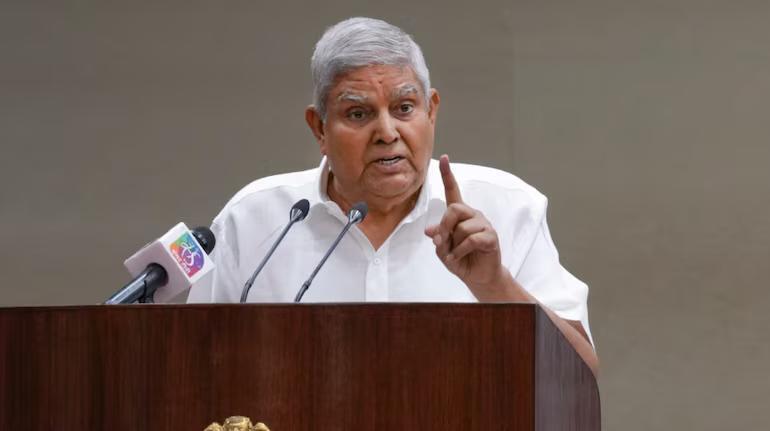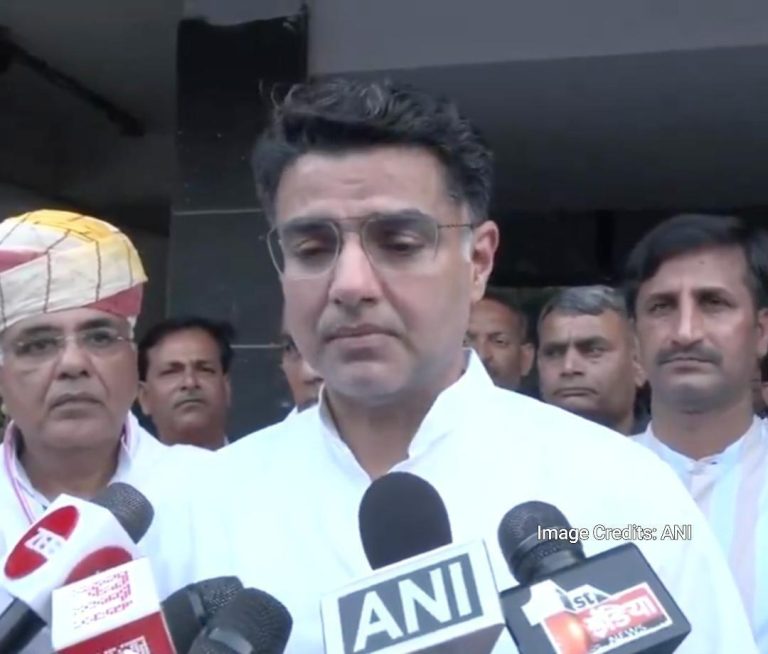
Terrorism is a Global Menace: Vice President Jagdeep Dhankhar Condemns Pahalgam Terror Attack
The world is reeling in shock and grief as a terror attack in Pahalgam, Jammu and Kashmir, claimed the lives of at least 26 innocent people. The brutal incident has sent shockwaves across the globe, and in a statement, India’s Vice President Jagdeep Dhankhar condemned the attack, terming it a reminder that terrorism is a global menace.
“I join the nation in expressing profound grief and outrage at the heinous attack in Pahalgam that claimed innocent lives,” Vice President Dhankhar said in a statement. “It is a reminder that terrorism is a global menace, and we must stand united to combat it.”
The attack on a bus carrying Amarnath pilgrims in Anantnag district’s Pahalgam area was carried out by terrorists who opened fire on the vehicle, killing several people on the spot. The injured were rushed to hospitals, where many of them succumbed to their injuries. The incident has sent a wave of shock and sadness across the country, with people from all walks of life condemning the attack.
Terrorism, as a global menace, has been a major concern for nations across the world. The rise of terrorist organizations and their increasing use of violence and brutality have made it a significant threat to global peace and security. From the 9/11 attacks in the United States to the numerous attacks in Europe, Africa, and Asia, terrorism has become a major challenge for governments and security agencies.
In India, terrorism has been a major concern, particularly in the Kashmir valley, where separatist groups have been fighting for independence from the country. The region has witnessed numerous attacks, including those carried out by terrorist groups such as Jaish-e-Mohammed and Lashkar-e-Taiba. The attack in Pahalgam is just the latest in a long line of brutal incidents that have claimed numerous lives and left many more injured.
The Indian government has been cracking down on terrorism, and in recent years, there have been several major operations against terrorist groups. The government has also been working to improve intelligence gathering and sharing to prevent such attacks. However, despite these efforts, terrorism remains a major challenge, and attacks like the one in Pahalgam serve as a grim reminder of the need for continued vigilance and action.
The attack in Pahalgam has also raised concerns about the safety of pilgrims and tourists in the region. The Amarnath Yatra, a major pilgrimage to the shrine of Amarnath, attracts thousands of devotees every year, and the attack has raised fears about the safety of these pilgrims. The government has assured that all necessary measures are being taken to ensure the safety of pilgrims and tourists, and that the attack will not deter people from visiting the region.
The attack in Pahalgam has also drawn condemnation from across the world. World leaders have expressed their shock and outrage at the attack, and have condoled the loss of lives. The United Nations Secretary-General, António Guterres, has also condemned the attack, calling it a “heinous act of terrorism” that is “contrary to the values of humanity.”
The attack in Pahalgam is a stark reminder that terrorism is a global menace that requires a collective response. It is a challenge that goes beyond borders and national boundaries, and requires international cooperation and coordination to combat. As Vice President Dhankhar said, “terrorism is a global menace, and we must stand united to combat it.”
In conclusion, the attack in Pahalgam is a tragic reminder of the devastating impact of terrorism. It is a reminder that we must stand united against this global menace and work together to prevent such attacks from happening in the future. As the world mourns the loss of lives in Pahalgam, it is crucial that we also remember the importance of cooperation and coordination in combating terrorism.



